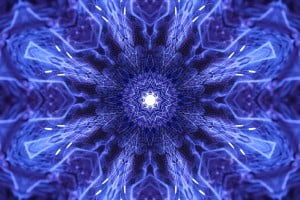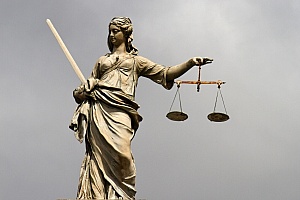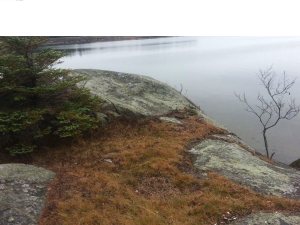The deepest issues underlying recent arguments over ‘Wiccan privilege’ are rooted in equality’s relation to freedom. Freedom of any sort always generates inequality of some sort. What kind of equality matters and when? What kind of freedom matters, and when? Thinking clearly about equality and freedom is tricky, and this is the most difficult paper I have written for Patheos.
The intensity and all too frequent venom I encountered in discussions over ‘Wiccan privilege’ dovetailed with other experiences I was having in very different contexts. I decided to revisit the issue of how we think about inequalities in a good society as well as in flawed ones. I think how many Americans deal with these issues today has gotten seriously off track. This is particularly true among those thinking of themselves as progressive.
This article will appear in three parts. The first concerns ‘Wiccan privilege’. Part II considers an example where the term actually has some value: ‘White male privilege’. I argue the value is small and if the term is used casually it does enormous harm to the causes its adherents favor. The third part leaves social science and philosophy behind and suggests how a Pagan outlook incorporating occult and spiritual insights deepens our understanding of these issues.
I want to make one point clear before I proceed. Nothing I write denies or excuses the enormous injustices and damage that racism and other forms of invidious discrimination inflict on people. Given the propensity of some of my critics to give the worst possible interpretation to what I write, I want to make this point explicit.
‘Privilege’ as it used to be
The term ‘privilege’ has long been used in many different ways. It could refer to the privilege of learning to drive, which requires reaching a certain age. Privileges could also be added as a child matured into an adult. These privileges required pleasing one’s parents, who could also take existing privileges away. In these uses every normal person will in time have all adult ‘privileges,’ after which they will be regarded as rights.
But there are very different meanings. Particularly in social and political analysis, people were described as having privileged legal positions over others, as was long the case for men with respect to women, and once the case with aristocratic classes. Other “privileged classes” were not so much legal creations as rooted in inherited wealth. In all these cases privileges were neither earned nor could all people ever enjoy them. They applied to some groups and not others.
People also say they were “privileged” to have had a happy childhood, or to hike in wild nature, or learn a musical instrument while growing up. Everyone wants a happy childhood but not all do. The other blessings were not earned, nor need everyone enjoy experiencing them. But for those who do, these opportunities can be life shaping. In all these cases ‘privilege’ is more a synonym for ‘good fortune’ than legal privilege or status as a youngster. The recipient did almost nothing, or nothing at all, to receive them.
‘Privilege’ can also be used as a benefit of membership. Upon becoming a member, one is said to have all the “rights and privileges” of that status. What this actually means is rarely described, but in these cases I acquire privileges by joining a group. Importantly, they are distinguished from rights.
These examples give us a sense of the word’s flexibility. But it is not endlessly flexible. In all cases privileges are distinguished from basic human rights. Ideally everyone has equal basic rights. Even children have some and will get others upon adulthood. By contrast a privilege implies, accepts, and sometimes justifies inequality, usually but not always unearned. What is shared by all equally is not a privilege.
I think this is why ‘privilege’ is a useful term for describing our relations with non-adults. In time children will become adults with equal rights, but until those rights are fully recognized they receive gradually increasing privileges compared to younger children. On the other hand, ‘privileges’ can also excuse behavior by little children that would not have been acceptable in older ones, or adults. They were be privileged by virtue of their young age.
All of these uses of ‘privilege’ apply to very different situations, carry different levels of ethical impact, and take their meaning from the context in which the word is used. All they share in common is a recognition of an inequality between people.
Privilege as used in social analysis today
As used today in social and political analysis, ‘privilege’ has expanded from its initial focus on legally defined privileges for a group to referring to advantaged socio-economic classes, to encompassing any socially recognized and approved differences one group has compared to some other group that gives them an unequal advantage.
Not every inequality qualifies as a privilege. Muggers are not privileged because the power they employ is not socially legitimate. Privilege refers to differences in socially legitimate power to achieve whatever it is one wants to achieve.
In a feminist context Laurie Penny writes approvingly “’privilege’ isn’t at all hard to understand. It just means any structural social advantage that you have by virtue of birth, or position – such as being white, being wealthy, or being a man. ‘Check your privilege’ means ‘consider how your privilege affects what you have just said or done.’”
This sounds simple, but “structural social advantage” is open-ended and so is the vague term “position.” Taken together they have no stopping point short of “any socially recognized position that gives someone an advantage over another.” As to birth, insofar as one has a more advantaged birth than another- better parents, better health, more secure home, any advantage at all, one is ‘privileged’ over those who did not have it.
A member of a group not privileged with respect to more powerful groups may still be privileged in reference to someone not enjoying the advantages they have. For example, America’s poor are wealthier than most of the world’s population. By this logic a resident of a Brazilian favela or Chinese slum could justifiably say all of America’s poor are ‘privileged’. But they are not ‘privileged’ in America.
From this perspective a person of inherited wealth or someone outstanding in their field are equally described as “privileged” compared to those who are not wealthy or not outstanding. The issues ‘privilege’ raises are not how the differences arise, only that they exist.
In describing a recent discussion of “Wiccan privilege” during this past February’s Pantheacon, Heather Greene reported “Several people stressed the importance in examining the oppressions that affect us and in staying aware of the points of privilege from which we speak. Who is given automatic authority by virtue of the established, dominant power structure – by virtue of age, position, accomplishments or religious tradition?” As Perry said above, “Check your privilege’ means ‘consider how your privilege affects what you have just said or done.’” What matters is the inequality.
Historically, when applied to groups of adults the term privilege usually carried a negative message or implied an obligation on the part of the privileged towards those not so privileged, as with the traditional conservative view of noblesse oblige. The contemporary expansion of ‘privilege’ to encompass all socially approved differences in “structure or position” as well as birth carries with it the sense that in an ideal society such privileges would not exist. Perry’s examples of ‘privileges’ arising from being White, male, or wealthy compared to others make this point clear, but her examples only scratch the surface of what her definition can include.
Wiccan ‘privilege’?
Consider “Wiccan privilege.” The term refers to the fact that most people think of Wiccans when they think of modern EuroPagans. This one-sided attention to ‘one tradition’ among many others allegedly constitutes a reason other Pagans have to be resentful or angry towards Wiccans, as we saw in earlier discussions on this site.
Consider again Greene’s observation “Several people stressed the importance . . . in staying aware of the points of privilege from which we speak. Who is given automatic authority by virtue of the established, dominant power structure – by virtue of age, position, accomplishments or religious tradition?” Those who are privileged have advantages others say they experience as “oppressions.”
A longstanding criticism of legal privilege was that people did not earn their privileges, they were born into them. This was unjust. Now this sense of injustice is applied to a vastly larger playing field. If someone has achieved significant accomplishments the authority they receive from others is “automatic” rather than earned. The authority comes from a “power structure” and so reflects power relations rather than recognizing a person’s accomplishments. Any advantage potentially constitutes ‘privilege’ manifesting as ‘oppression’.
During a Pantheacon meeting and in various online discussions many commentators attacked making significant distinctions based on accomplishments or position. Any ‘privilege’ was considered an affront to the ‘less privileged’ unless the ‘privileged’ actively deferred to them. It was a passive-aggressive claim that because I am weaker/less well known/ less accomplished in the eyes of others than you are, you have to defer to me.
This is the perspective that argued Wicca enjoys an unjust institutional dominance that constitutes ‘privilege.’ But what does this mean? There is no central Pagan clearing house and most Wiccan groups are limited to 13, and rarely grow that big. A coven can refuse to initiate someone, but that does not prevent them from seeking membership elsewhere or starting a new Wiccan ‘tradition’ up on their own initiative. Every coven is independent, and their variety has grown so much “Wiccan” no longer means what it meant in the sixties, when it only described descendents of British traditional groups. Wiccans do not even control the definition of who we are.
Further, if someone creates a Druid Grove or a Heathen blot, no Wiccan anywhere has anything to say about it. And today many Pagans are solitaries, even if they might call themselves Wiccans. There is no “Wiccan power structure” which, if the term has any meaning at all, implies some hierarchy of authority.
The real issue is that Wicca is better known and has more people identifying with it. The reasons have nothing to do with any kind of control or authority Wiccans exercise over other Pagans. We Wiccans were the first practicing NeoPagans to become public, and so begin to attract followers. We grew in numbers because people wanted to join us. We were among the first, perhaps the first, Pagans to become active in interfaith activities and certainly the first to have a national organization, Covenant of the Goddess, actively promoting such activity.
Pagans identifying themselves as Wiccan are better known than others and have more members. But what is surprising about this? We were the first NeoPagans with a public presence and our rituals are suited to any place with four seasons. We emphasize the universal themes of the divine feminine and the sacredness of nature and de-empathize any particular ethnic connection, which is why there are so many forms of Wicca claiming to represent different ethnicities. Or none at all. If my new book is correct, Wicca in its broad sense speaks directly to the deepest spiritual needs of many modern Americans. This is why Starhawk’s workshops inspired so many women in other religious traditions to explore the sacred feminine and the sacredness of nature from within their own religious traditions. They did not become Wiccans by doing so, they remained Christian or Jews or Buddhists, but Wiccan themes powerfully spoke to them.
Some Wiccans focused on interfaith activity very early. The result was that our path became well known in interfaith communities. As a rule even now other NeoPagan and Pagan traditions take less advantage of opportunities for interfaith engagement opened up by Wiccans. Consequently non-Pagans engaged in interfaith usually meet Wiccans. They therefore naturally think of Wiccans when they think of modern Pagans, and speak about us in that way to others within their own communities. While Wiccans frequently remind them there are other Pagan traditions, words are not as memorable as the men and women they meet.
Additionally, the groups complaining today were formed years after Wicca had put down strong roots in this country. These groups benefit from years of Wiccan public out reach, benefits they did nothing to help obtain until recently, if they helped at all. Among the advantages they inherited from our work is the fact they rarely if ever worry about losing their job if they become known as Pagans. It was not always so.
Years ago many out-of-the-closet Wiccans lost jobs because of our religion. I know for I was one who did. I took the risks of being public partly because I had no family to support, and no one depended on me. Others with stronger obligations to loved ones or greater vulnerability chose to stay in the closet. Even so, through their connections with family and friends most played important roles in overcoming popular fears of Witchcraft, Pagans, and the like. Consider as evidence the success of Dar Williams’ wonderful The Christians and the Pagans.
Today there is vastly less risk to individuals proclaiming they practice a Pagan religion. The pentacle and just recently Thor’s hammer have been approved for military tombstones. Every Wiccan I know was pleased when the hammer was added. We did not think our ‘power’ was challenged.
That other Pagans benefited from Wiccans’ work no more makes them ‘parasites’ and ‘free loaders’ on those of us who did the work than Wiccans are ‘privileged’ because for decades Wiccans did most of the heavy lifting relating as Pagans to the larger society. Both outlooks represent zero-sum perspectives on human relations and both are ignorant and destructive.
Life consists of cycles of gains and losses, assets and costs, frequently interweaving inextricably and unpredictably within a generation and between generations. As many of us Wiccans say, “She changes everything She touches, and everything She touches changes.”
The mistake here is akin to trying to judge the vitality and value of an ecosystem by standards requiring every being, or every species, to play an equal role or be open to criticism. An ecosystem is richer because different beings play very different roles. The same is true for humanity’s “social ecosystem.” Both are complex systems creating wholes that are greater than the sum of their parts. I love the African proverb “I am because we are” and I am richer and more multifaceted if we are not all the same.
Employing the language of ‘Wiccan privilege’ only adds the parts together- and does so without factoring in how the so-called ‘privileged’ also made life easier for the so-called ‘oppressed.’ At best it is a snapshot of a single dimension of equality and inequality at a narrow point in time. In other words, at best it is misleading.
It is also a moral failing.
The triumph of resentment and envy
Let us return to what Laurie Penny wrote: “’privilege’ isn’t at all hard to understand. It just means any structural social advantage that you have by virtue of birth, or position – such as being white, being wealthy, or being a man. ‘Check your privilege’ means ‘consider how your privilege affects what you have just said or done.’”
Virtually every difference within society enabling some people to have advantages others do not is rooted in birth or positions or both. As Perry presents it, all these differences pick up the moral flavor that comes with the abuses of race, gender, and wealth. That most people think of Wiccans when they think of Pagans understandably annoys some non-Wiccan Pagans. They frequently have to explain they are not us. It can be irritating but is no more “oppression” than when any of us Pagans has to explain to an uninformed person how assumptions about religion rooted in Christianity do not necessarily apply to us. I call this a “teaching moment.”
I have also heard about occasional self-described Wiccans claiming Wicca is ‘best.’ But I know of no statement to this effect by any prominent Wiccan, and a great many who say otherwise. My book Pagans and Christians went to some lengths to make that point and it has been out just under 15 years. Why ‘privilege’ the views of an unrepresentative unpublished and to most of us unknown minority over the majority of Wiccans who say otherwise?
To identify these rather trivial issues as a part of the same problem of ‘privilege’ that colors some of the worst moments in American history is offensive in both directions. It trivializes the real crimes and grotesquely exaggerates the inconveniences of not being as well-known as someone else, or encountering the occasional fool.
This is nuts, and it is a poisonous nuts because it encourages envy and resentment, and magnifies both with a large dose of confident self-righteousness. The problem is not confined to Pagans. The same style of thought plagues others as well. For example, mainstream feminists are similarly afflicted.
When any socially sanctioned inequality rooted in a person’s position or some social structure is regarded as a ‘privilege,’ clear thinking is the first victim. In the case of ‘Wiccan privilege’ almost all who complained in a denunciatory way were members of small new traditions. At Pantheacon I heard complaints they received less favorable time slots for their presentations than others did. But most workshops and presentations, including my own, received less than ideal time slots. This is what happens when there are lots and lots of workshops and time is limited. (My big one, on healing, was Friday afternoon, when almost certainly many who would otherwise attend were at work. I had another about my new book early Friday evening when many were eating.) The prime Saturday and Sunday slots went to better-known people likely to draw very large crowds. As they should have. Ironically, those complaining about ‘Wiccan privilege’ limiting their presentations made no mention of their ‘privilege’ over the many proposals that were turned down! Did they ‘oppress’ those denied any slots at all? Or is there something wrong with this entire line of thought?
The word “privilege” is too abstract to do the work that needs to be done when we are discussing the intricacies of equality and inequality and how to make life better. It works well with respect to legal privileges giving some people advantages over others in the eyes of the law. It can be useful for other cases I describe in Part II. Expanding it as has been done for ‘Wiccan privilege’ and its equivalent in feminism opens the door to serious abuses and confusions.
But if claims to “Wiccan privilege” and similar slights, real and imagined, lead to severe misunderstandings and abuse, what of uses that seem connected to genuine oppression? What about “White male privilege?” Does the term ‘privilege’ do any real work or provide any valuable insights in that context?
















